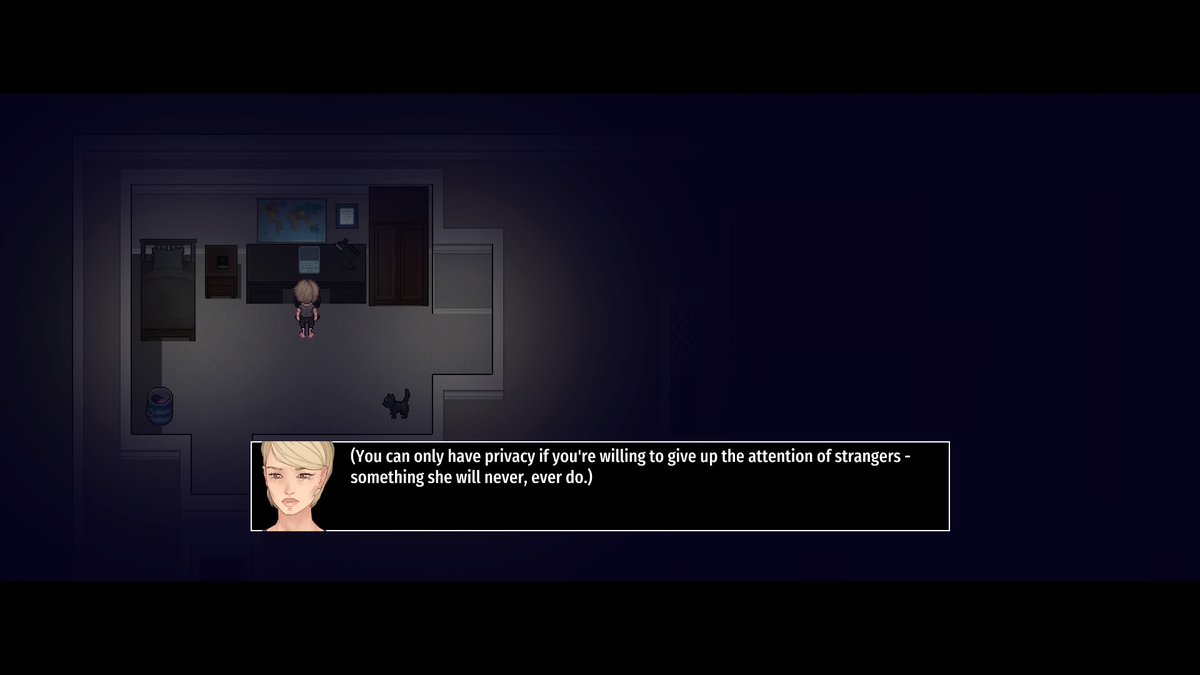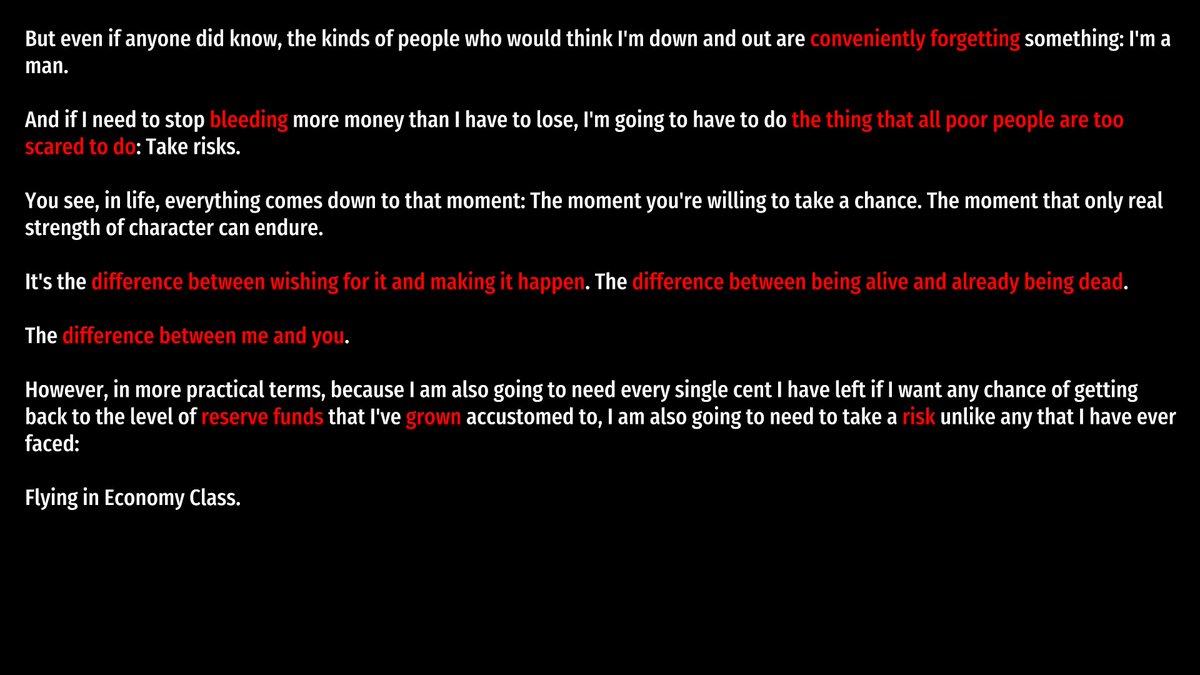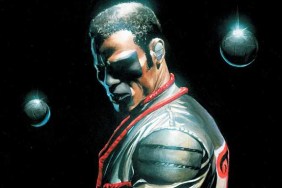Spoiler warning for Little Red Lie and content warning for mentions of suicide, depression, and sexual assault.
Little Red Lie, developer Will O’Neill’s bleak look at capitalism and poverty, released in early January on both PlayStation 4 and Vita. I had started my playthrough around launch but didn’t finish the narrative adventure game until December rolled around. I didn’t neglect it because O’Neill had crafted a title rivaling The Witcher 3 in length. It was because the subject matter was simply too much to take especially in a year fraught with personal and worldwide misery. But instead of despising it for its dourness, it stuck with me because of it and more than most other games this year.
The writing’s dark tone wasn’t surprising given the developer’s previous game, Actual Sunlight. It dealt with depression and suicide in a mature manner that gaming rarely does, and I’ve followed O’Neill long enough on Twitter to know that he’s one of the few people that rival myself in terms of having a nihilistic outlook on life. In fact, I had attempted to play through the game upon its original PC release in 2017 but quickly stopped playing after its extremely powerful opening scene. After asking a few simple questions about the player’s financial background (such as if they have a support system or make a considerable amount of money per year), the game poses one hell of a question at the player: “Would you rather commit suicide than live in significant poverty?”
That’s a heavy question to start off with, and I’m sure that is where the game’s overall theme of lying begins for a lot of players. After all, who wants to admit that they would rather check out of existence than live a life that will likely never get all that much better no matter what you try to do? So many people view themselves as a warrior with redeemable traits that would help them not be stuck in a bad situation, but things are much more difficult when you’re actually living that life rather than just dealing with a hypothetical question.
After all, if you’re playing Little Red Lie then you probably aren’t in significant poverty to begin. You convinced yourself that you deserve a PlayStation 4 for self-care purposes. That money could be spent paying your ever-increasing credit card debt that will bite you in the ass someday. Yes, some day, but not quite yet.
Best of 2018 – We All Lie

There are two very different stories being told in Little Red Lie. One revolves around Arthur Fox, a rich and spineless public speaker that is willing to say whatever it takes for people to buy his financial self-help books, while the other deals with the struggle of a middle-aged woman named Sarah Stone that lost her job, has no savings to speak of, and lives with her elderly parents and mentally ill sister. The one thing that ties the two stories together, other than the greater Toronto setting, is that both characters are constantly telling lies.
No, these aren’t the “white lies” that have been romanticized as a positive act of kindness towards others, but rather “red lies,” the type of falsehoods that serve a purely selfish purpose. The untruths that one tells themselves in order to get through the day; the fabrications that serve no other purpose but to feel a tiny bit better about your situation. Their delusions come to light throughout a story that sees both of their lives quickly spiraling out of control.
Fox’s vices come in the form of drugs and sex, and even manifest in the player covering up a rape in a particularly dark moment. Stone, on the other hand, watches the health of her parents rapidly decline and both are dead by the time the credits roll. Ultimately, things never get better for her, while Fox’s connections and wealth help him get out of the most reckless of behavior and avoid any actual punishment.
Stone’s story is far more sympathetic in nature, but even then, she isn’t painted as a particularly good person. Her actions are often incredibly selfish, she has trouble confronting any of her problems directly, and is just as judgmental as the people she despises. Some would say the lack of any well-meaning characters is a very nihilistic look at society, but I found it to be a realistic one, especially considering the overbearing dread when dealing with all of the downsides to late capitalism.
Best of 2018 – Little Red Lie Defines 2018

Arthur Fox ultimately solves all of his self-inflicted problems with the one thing that Sarah Stone, and many of the players, don’t have: a large amount of money. Sure, many of the solutions are vain in nature and merely cosmetic (such as gaining his children’s love by just buying anything they want), but it’s not like Fox is looking for more out of life. As long as he can believe his own lies, and everything looks good at a distance, then he can jet around the world in first-class while feeling good about himself as a person.
Meanwhile, the majority of people suffer underneath him. Society caters toward the rich and rules merely exist in order to make those with money pay more to skirt around them. Little Red Lie doesn’t look to provide an escape from the real problems that are impacting almost every country in the world and have been given an increasing spotlight in 2018. Nobody needs to look further than the recent riots in France to see the very real unease that this sort of financial disparity causes. That sort of structural violence crafted by the elites, by the Arthur Foxes of the world, drags everyone down but them.
When I look back at 2018, I’ll see a year where many of my own actions didn’t matter. Instead, it will serve as a reminder that people can only do so much to change a system that has been designed to oppress, and there’s little reason for one to be happy when things seem so objectively miserable. Or at least I’ll find solace in telling myself that the systems won’t change and there’s no point in helping just to get through another day. My own little red lie.







